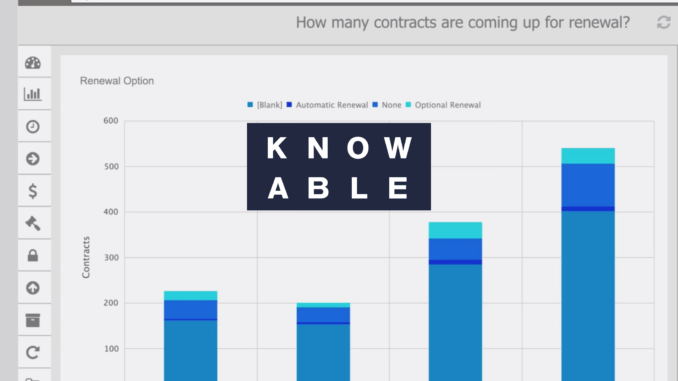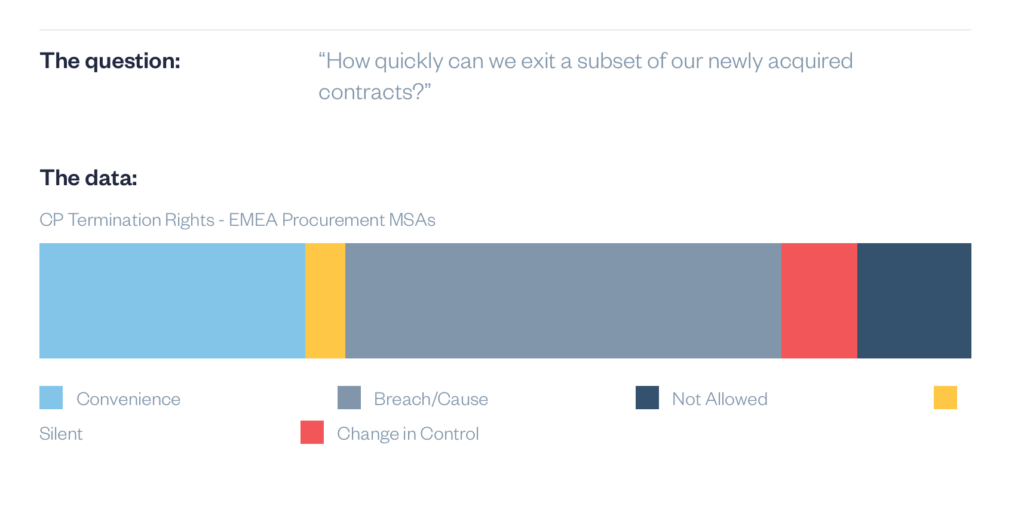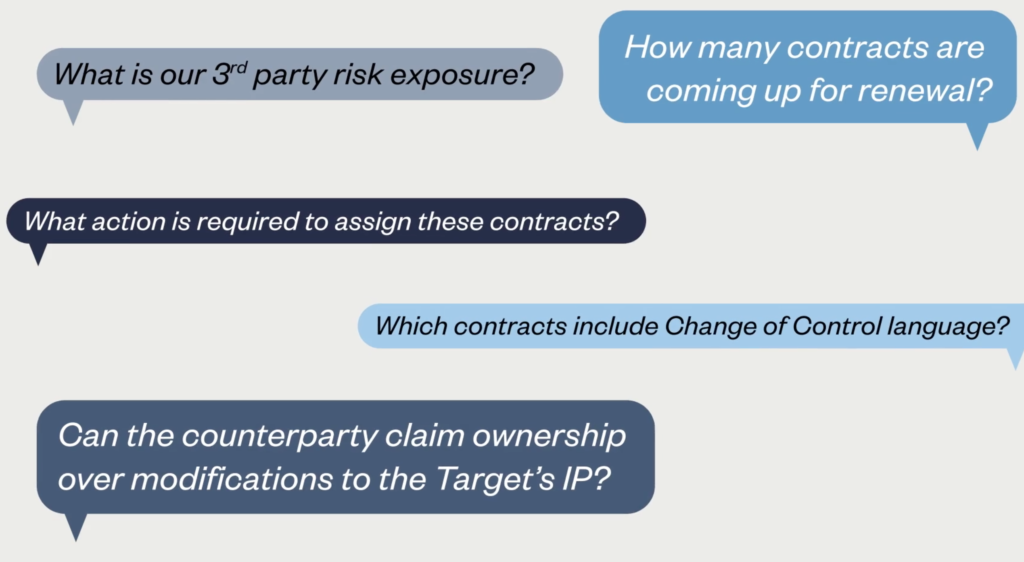
Knowable, the contract analytics group that spun out of Axiom earlier this year and formed a JV with LexisNexis, has developed a strategy for contract analysis and insight delivery that it believes will place it in a leading market position.
Knowable CEO, Mark Harris, told Artificial Lawyer that the company’s approach is to harness M&A deals and other large scale event-driven corporate changes to help create an on-going structured database for each of its clients, which then provides a Q&A facility that can give answers to their business and legal questions.
‘This is about understanding contracts without reading them. You have a dashboard where a portfolio of all the contracts [in a company] are now understood. That’s a profound shift,’ he told Artificial Lawyer.
The logic goes like this: when a large company buys another it inherits a huge number of contracts in which are a complex mass of commitments and legal positions covering a range of issues that go to the heart of the business.
The goal is to get that information out of the unstructured document stacks and into a structured framework through which Knowable enables clients to gain a dashboard view into key questions it may want to ask.
See example below – ‘How quickly can we exit a subset of our newly acquired contracts?’

Harris’s view is that although M&A due diligence is a key AI doc review activity, the real long term value is in what we can call contract intelligence for corporates.
And, the tech for this? Back when it was integrated into Axiom they looked at a number of AI doc review tools, and used the well-known Kira Systems. Now, they have built their own machine learning (ML) software, which everyday is being refined and improved as thousands of contracts are passed through it.
The end goal: to be the major player when it comes to corporates accessing contract intelligence.
‘We used Kira as a tool when we did this [in the past], but we decided to build our own ML. We are trying to do something different,’ Harris said.
That said, they continue to use a human element to make sure the structured data inputted into the platform, that companies will then rely upon, is accurate as possible.
If the goal is to have a CEO, CFO, head of HR, or a GC, rely upon this information, then it’s got to be 98%-plus accurate. It’s not like a fast review exercise, where just spotting the really glaring issues is enough. But, Harris and Knowable are well prepared for this, given that Axiom was heavily focused on human input. They’re simply building out an AI layer on top of this now, or perhaps it’s better to say: through it.
He added that the last few months have been a bit hectic, with the spin off, the JV with LexisNexis, and then the Axiom deal with Permira. The company website is still getting filled out with content, he noted also.
In short, Knowable is in a stage of rapid change and evolution, but they know where they are going.

‘We are driving insights from the information sitting in this incredible information set [that companies have]. This is mission critical information and companies need access to it on a daily basis,’ Harris said.
He added that the ‘companies we work with have 200,000 to 400,000 contracts, and we help them to not miss opportunities and to reduce revenue leakage’.
The scale of the contract stacks also helps to train up their ML and also to steadily increase the number and type of questions that they can help answer for a company.
The way Harris sees things, their approach will out-compete the more narrowly focused AI review tools that exist primarily for event-driven needs.
Knowable instead leverages the event driven reviews to improve each client’s understanding of their ongoing position.
Last point: for Harris, as with a growing number of people involved in contract analysis, this is not per se a purely legal vertical.
Once you get visibility and understanding of all your contractual positions – across many types of agreements – this information becomes valuable knowledge for all the divisions of the business, from sales, to procurement, to finance, to HR, and more.
Overall, it looks like a compelling proposition. There is further work to be done on building out their ML and insights capabilities. But, they have come a long way already. And, their ambition to disrupt the market appears to be entirely plausible and achievable.

2 Trackbacks / Pingbacks
Comments are closed.